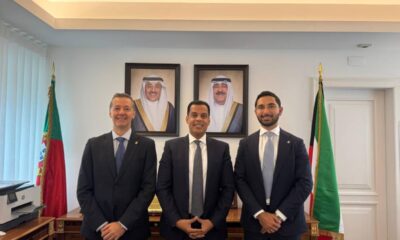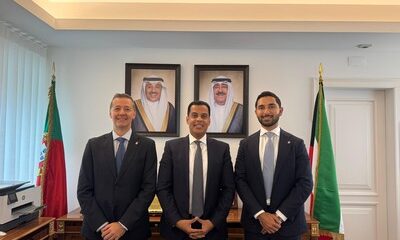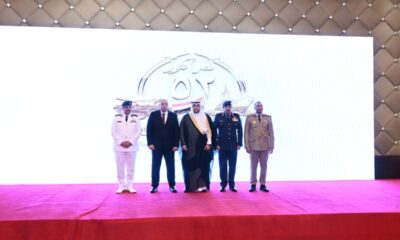KUWAIT CITY, Oct 7: Kuwait’s long-anticipated return to the global debt market has made a resounding impact, with its first sovereign bond issuance in eight years drawing over $28 billion in demand — more than twice the offered amount of USD 11.25 billion. Economists say this strong investor appetite reflects deep confidence in Kuwait’s financial resilience, sovereign creditworthiness, and the country’s ongoing structural reforms, led by the recently enacted Liquidity and Financing Law.
Economists speaking to KUNA on Tuesday affirmed that the issuance was not simply a tool to cover fiscal deficits. Rather, it was a strategic political signal to international markets that Kuwait is bolstering its financial instruments and putting into action a new approach to managing public debt. The move, they explained, comes within a broader reform effort that aligns with Kuwait’s long-term development strategy.
Mohammad Al-Jouan, Secretary General of the Kuwait Economic Society, emphasized that the global competition among investors and governments to acquire Kuwaiti bonds was the result of a clear and compelling set of factors. Foremost among them is Kuwait’s exceptional financial solvency, which remains one of the highest in the region. Backed by vast reserves managed by the Kuwait Investment Authority and the Future Generations Fund, Kuwait has maintained a public debt-to-GDP ratio of less than 10 percent before the issuance — making it a standout sovereign borrower among emerging markets.
Al-Jouan added that the country’s absence from global debt markets since 2017 had created a scarcity of Kuwaiti sovereign paper, generating pent-up demand among major funds and institutional investors in search of highly rated assets in the Arabian Gulf. The timing of Kuwait’s return, he noted, was ideal, given the global appetite for safe yet profitable investment opportunities.
Strong sovereign credit ratings have further reinforced investor confidence. Al-Jouan noted that Kuwait has maintained high-level assessments from the three major rating agencies—Fitch, Standard & Poor’s, and Moody’s—all of which continue to assign ratings in the A to AA range with a stable outlook. These ratings signal a low-risk environment compared to other regional issuers and were a key attraction point for investors.
Another driver of demand was the competitive pricing of the bonds, which were issued with a spread of just 40 to 50 basis points over US Treasuries. Al-Jouan said this was a highly attractive yield considering Kuwait’s financial strength, offering a rare blend of low risk and favorable return, outperforming similar bonds in the US and European markets.
He further stressed that the issuance sent a deliberate political and strategic message to global markets. It signaled not only fiscal discipline but also Kuwait’s commitment to implementing the Liquidity and Financing Law, which has redefined its approach to public debt. The international allocation—66 percent of the issuance—was directed to investors across the US, Europe, and Asia, reinforcing the global nature of the offering and boosting investor confidence.
Professor Yousef Al-Mutairi, an expert in administration and public finance at Kuwait University, said the issuance aims to ease the burden on the General Reserve Fund, which had been heavily relied upon to finance prior deficits. This includes development projects that had stalled due to funding constraints. With bond financing, these projects can now move forward and contribute meaningfully to Kuwait’s GDP growth in the future.
Al-Mutairi highlighted the economic logic behind shifting from reserve withdrawals to bond issuance. Unlike liquidating long-term assets in the Reserve Fund — which can be costly and time-consuming—bond financing provides quicker, more manageable liquidity. He explained that while using reserves had led to excessive and unsustainable withdrawals, bonds represent a more structured and internationally accepted financing method, allowing for fiscal control and strategic planning.
He also pointed out that the issuance was timed perfectly with global monetary easing cycles. As major central banks, including the US Federal Reserve, lowered interest rates, the cost of servicing the bonds dropped significantly. The issuance was spread across three tranches: $3.25 billion with a three-year maturity, $3 billion with a five-year maturity, and $5 billion with a ten-year maturity, providing a balanced debt profile.
Beyond macroeconomic management, Al-Mutairi noted that bond issuance also helps manage inflation. By withdrawing excess liquidity from the local market, sovereign bonds can reduce the consumer price index and commodity prices, ultimately strengthening the purchasing power of the Kuwaiti dinar and stimulating broader market activity.
Dr. Fouad Al-Omar, former Vice President of the Islamic Development Bank and a financial and economic expert, highlighted the long-term developmental benefits of using debt instruments such as bonds. He said they allow Kuwait to mobilize international capital for vital infrastructure and development projects without draining national reserves intended for emergencies. He pointed to the COVID-19 pandemic as a recent example where the reserve fund played a critical role.
Al-Omar emphasized the importance of clearly defining the use of proceeds from the bond issuance, ensuring they are directed toward profitable and growth-oriented projects that deliver long-term economic returns. He added that the successful issuance also serves as a catalyst for creating a domestic market for debt instruments, opening the door for international financial firms to engage with Kuwait’s growing capital markets sector. This, he said, aligns closely with the country’s strategic vision for financial diversification and economic resilience.
The Ministry of Finance confirmed that the bonds were issued in accordance with the Liquidity and Financing Law (No. 60 of 2025), which is part of a wider package of structural and legislative reforms. These include the Multinational Entities Tax Law (Decree 157 of 2024), implemented at the beginning of this year, and the Real Estate Development Law, which supports private sector involvement in addressing the national housing shortage, among other executive decisions.
Acting Minister of Finance Dr. Subaih Al-Mukhaizeem said that the strength of demand and the competitive pricing achieved through this issuance reaffirm Kuwait’s position as a leading sovereign issuer. He stressed that the bond sale not only secures financing for current needs but also enhances Kuwait’s global financial profile and deepens its partnerships with international investors, as part of the broader goals of the “New Kuwait 2035” development strategy.

 Politics23 hours ago
Politics23 hours ago
 Politics13 hours ago
Politics13 hours ago
 Latest News20 hours ago
Latest News20 hours ago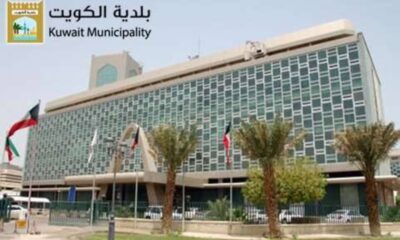
 Latest News23 hours ago
Latest News23 hours ago
 Latest News12 hours ago
Latest News12 hours ago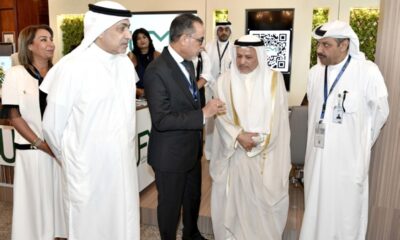
 Latest News22 hours ago
Latest News22 hours ago
 Latest News14 hours ago
Latest News14 hours ago
 Politics4 hours ago
Politics4 hours ago




